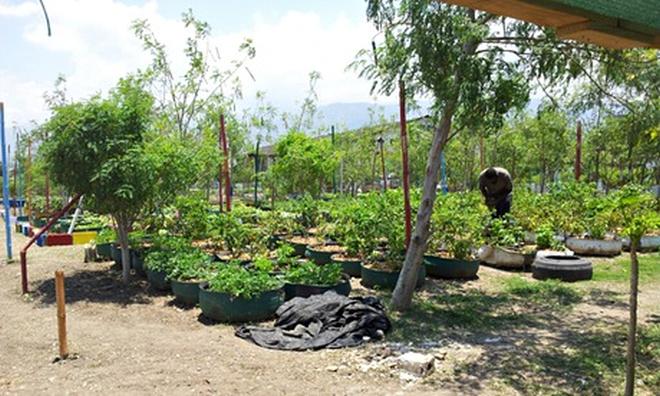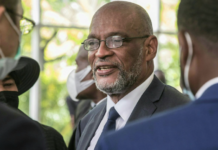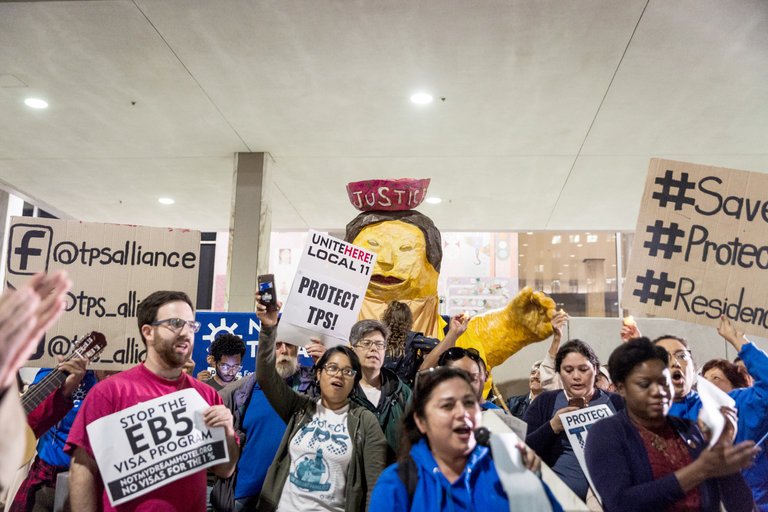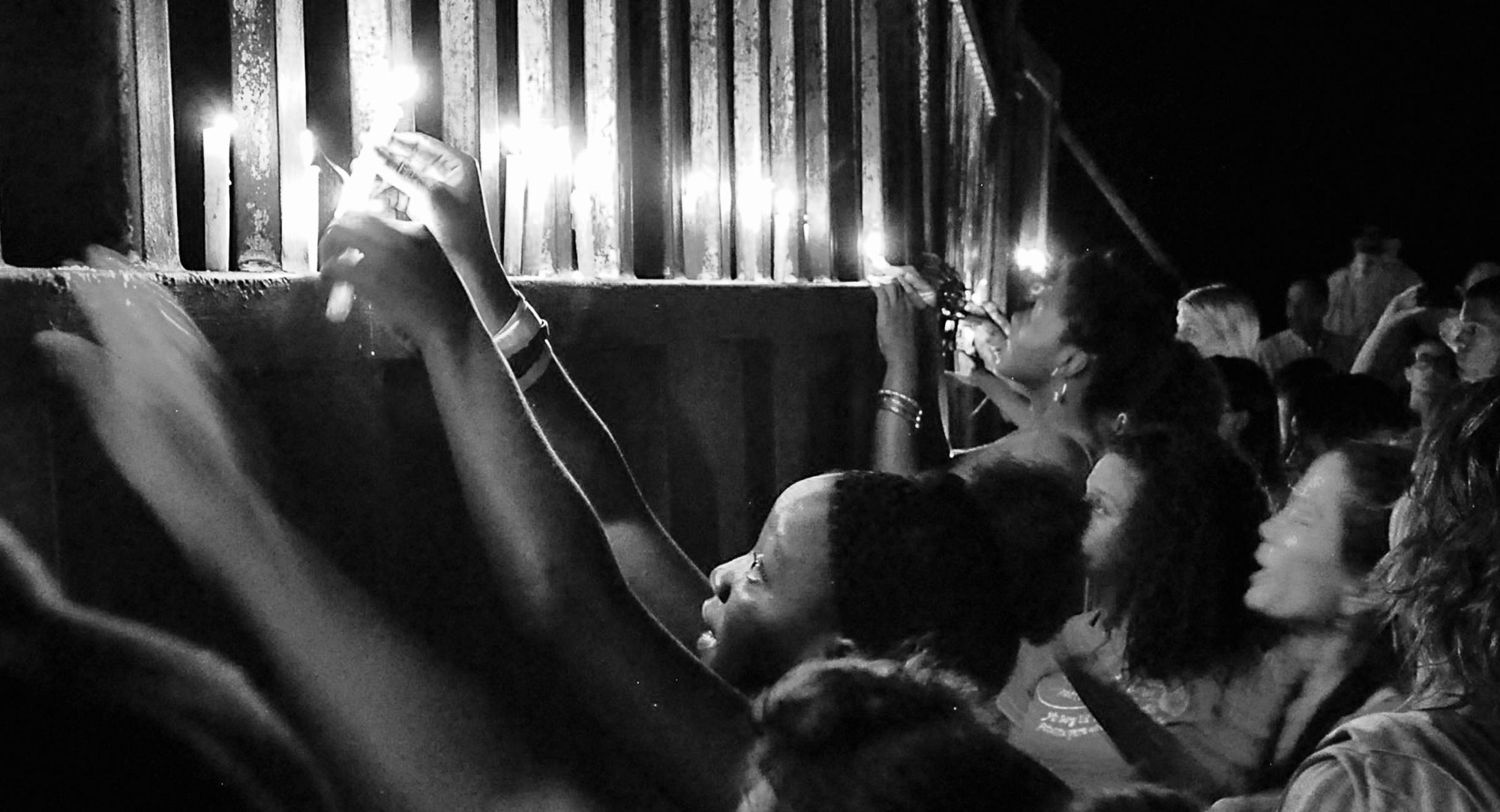
In this op-ed, writer Fabienne Josaphat explains the history of Haiti, and how it has been mistreated by politicians long before President Donald Trump’s recent remarks.
President Donald Trump’s ignorance of Haitian contributions and history continues to mislead the American people. On January 11, the President of the United States met with officials on immigration and allegedly said, regarding Haitians and Africans, “Why do we want all these people from shithole countries coming here?” The Washington Post first reported the news.
These statements made on the eve of the anniversary of the January 12, 2010 earthquake that killed up to 300,000 Haitians. As a Haitian immigrant living in South Florida — where, in 2015, an estimated 127,189 people of Haitian ancestry lived in Miami-Dade County alone — I could feel the indignation broiling beneath my people’s skin. Locally, councilman Alix Desulme, who represents District 4 in the City of North Miami, called the alleged comments “divisive and racist,” and demanded an apology.
“Sadly, we have a president who continues to show America how great we can become through his destructive selfishness,” the councilman said. The mayor of North Miami himself, Dr. Smith Joseph, chimed in with his own statement, saying, “Our nation should not tolerate this overt racism from a president who is sworn to protect us.” Haitian-American Congresswoman Mia Love, a Republican from the state of Utah, said, “The President must apologize to both the American people and the nations he so wantonly maligned.”
Instead, what came hours after the news of the reported comments broke, was a tweet from the president in which he denied making the comments, calling Haiti “poor and troubled.” He claimed to have wonderful relationships with Haitians, but failed to acknowledge a single one by name. None of this, again, is surprising.
Fox News host Tucker Carlson affirmed that the president was merely voicing what his base was already thinking, casually asking, “Why can’t you say that?” on air. Many Trump supporters disagree with the notion that Trump is a racist, despite his allegedly saying “We should have more people from Norway” after his “sh*thole” comment was made.
Describing a person’s country as a “sh*thole” shows an absence of critical thinking, and is a display of ignorance. It echoes an existing sentiment of xenophobia in this country from Trump voters, most of them white, now referred to as “the forgotten men and women.” They are being misled by a man who knows nothing about the Haitian people and their history. Yes, the U.S. should respect the Haitian people simply because of their humanity. But Haiti also deserves respect because it spent its entire existence as a nation contributing to the enrichment and greatness of superpowers like America.
Historically, Haiti has always offered its best to the world and is proud of its accomplishments. It was the first to lead a successful slave-led rebellion to topple French slave owners, claiming its freedom in 1804. Without Haiti, there would be no Louisiana Purchase, a treaty that earned the United States the entire Louisiana territory and more than doubled the country’s size. New Orleans’ vibrant culture would not be the same without the influence of integrated Haitians. In Illinois, what would later become the city of Chicago was founded by a Haitian-born pioneer named Jean-Baptiste Point du Sable. In addition to liberating slaves in other countries, Haitians helped America fight its Revolutionary War, and when World War II drove countries to form urgent alliances, Haitian pilots joined the Tuskeegee Airmen as part of the U.S. Army Air Force.
Our decision in 1804 to live free or to die was heroic, but the U.S. did not officially recognize this independence until 1862. France put the nation in the humiliating position of having to pay reparations at an annual rate for the slaves they lost, so Haiti was forced to borrow money to repay their oppressors, and borrowed from banks in France and the U.S.. Several initiatives have been launched to cancel Haiti’s debt, but pressure to repay debtors initiated further borrowing, keeping Haiti in constant crushing debt.
The U.S. profited off Haiti during the American occupation of Haiti from 1915 to 1934, suppressing riots and killing rebels. Initially led by then-President Woodrow Wilson, the U.S. military imposed racist soldiers onto the Haitian people, introducing a new strain of cruelty that led to the decapitation and dehumanization of insurgents.
The dictatorship of François “Papa Doc” Duvalier, which lasted in Haiti from 1957 to 1971, was able to endure because of American complicity. Specifically, as Duvalier murdered and brutally oppressed Haitians, the U.S. looked the other way because Duvalier was effective at staving off communism, which the U.S. saw as a threat. When that regime was toppled when Duvalier’s son was overthrown in 1986, the nation was completely impoverished, its funds depleted to line the pockets of tyrants like the Duvaliers. In addition, because of its debts to the U.S., Haiti has been by default constantly subjected to American intervention.
Despite our contributions to America, Trump’s language doesn’t necessarily come as a surprise to Haitians, as we too often face this type of disregard from so many in power. Yet, during his presidential campaign, Trump made sure to draw attention to Hillary Clinton’s actions regarding Haiti to discredit the Democratic candidate. In 2009, when she was Secretary of State, Clinton suppressed Haitian minimum wage, at the behest of manufacturers, then after the 2010 earthquake, Bill Clinton became head of the Interim Haiti Recovery Commission. He enlisted the Clinton Foundation to build shelters, a relief effort considered to be a disaster, called out even by the likes of Oxfam.
With more than one million people displaced after the 2010 earthquake, the U.S. poured aid money into Haiti, but years later, investigations have found that very little money actually reached Haitian citizens. Haitians still lack shelter that was promised by the American Red Cross after the humanitarian organization raised almost half a billion dollars from helpful donors. The Clinton Foundation, again, is also implicated in failing in their recovery efforts to aid Haiti with reconstruction projects after the earthquake despite raising more than $30 million.
Then, Haiti suffered a devastating cholera outbreak that started at a United Nations peacekeeping camp, and as of November 2017, the Trump administration has refused to assign unspent UN peacekeeping money to help combat the epidemic. Instead, his administration chose to end Temporary Protective Status for 60,000 Haitians sheltered in America as a result of the earthquake.
This sent a clear message to Haiti and its diaspora, and now, his comments about them speak volumes. In Trump’s world, there is no room for black and brown people to thrive. Yet, he shows an acceptance of white nationalists, identifying as “very fine people” some of the those protesting to keep Confederate monuments after the deadly Charlottesville rallies.
He does not know the history of Haiti, and he doesn’t comprehend the significance of Haiti’s contributions, because he doesn’t care to. His wealth and privilege have allowed him to erase others to the point of invisibility.
But Haitians exist as a reminder that the damages of racism and oppression cannot sway self-determination. We are not going anywhere. In fact, Haitians continue to thrive despite adversity. Our ancestry and culture empower and enable us to bounce back and carry on. If the whip of slavery did not break us, the words of an inveterate racist will not kill us. Haitians sacrifice for others even when others don’t sacrifice for them. I see this as the definition of love: the continuous devotion to others with no expectation of reciprocity.
As a Haitian immigrant, I am tired of always asking for apologies, so I’m not personally interested in one from Trump. I’m interested in active and constructive repairs to our dignity in the American media, demonstrating an intent to rebrand and respect Haiti, rather than baiting audiences into buying into images of poverty and misery, because one narrative does not define us. Apologies, to me, are futile unless they are backed up by action and determination for change. Until then, we are planting our feet in the ground and waiting for the next insult to fly.
By: Fabienne Josaphat for TeenVogue.com | January 16, 2018




























![Phyllisia Ross – KONSA [Official Music Video]](https://haitiville.com/wp-content/uploads/2014/08/phyliisia.jpg)











